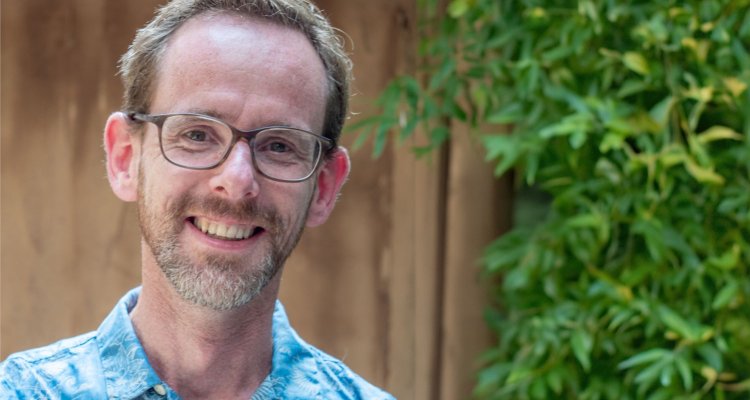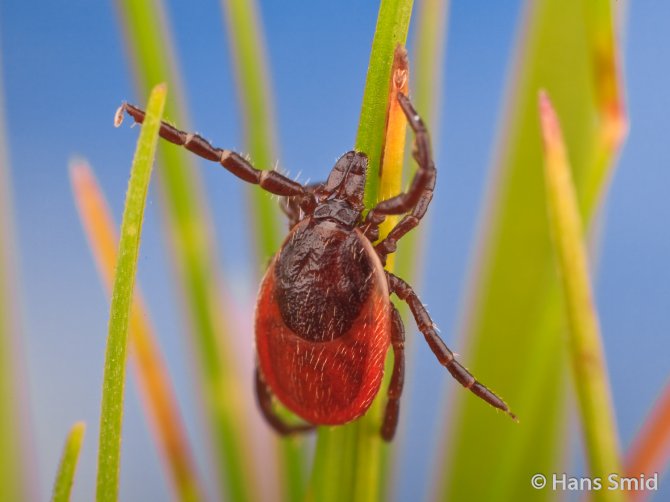
News
New Professor for the Control of disease-transmitting insects
Sander Koenraadt has been appointed Professor of Ecology and Control of Disease-Transmitting Insects at the Laboratory of Entomology at Wageningen University & Research. As a personal professor, Koenraadt will focus on blood-sucking arthropods, such as mosquitoes, ticks, and midges, which can transmit unpleasant pathogens as they bite.
‘We face many challenges,’ Koenraadt observes. ‘For instance, the tiger mosquito is becoming increasingly common in the Netherlands. This biting mosquito is a vector for diseases that can cause serious health problems, such as dengue fever and the Zika virus. In parts of Europe, the West Nile virus is on the rise, and in Africa, malaria is becoming a greater issue due to resistance against existing treatments.’
To address all these problems, both fundamental and applied research is needed. Koenraadt explains, ‘Wageningen University & Research offers a unique environment for multidisciplinary research. By collaborating with medical faculties, governments, and other research institutes, we can play a leading role in the Netherlands in tackling these global problems.’
Raised in Brabant
Sander Koenraadt grew up in the Dutch region of Brabant, where he was often found at the local visitor centre of the Oisterwijk forests and fens. Here, his interest in nature, both above and below water, was sparked. During his biology studies at Wageningen University & Research, he quickly became fascinated by the wonderful world of insects. Bees and bumblebees as pollinators, ants as cleaners, and blood-sucking mosquitoes as disease carriers all have a significant impact on our daily lives.

Collaboration with Social Sciences
After completing his PhD in 2003 on malaria in Kenya, Koenraadt conducted postdoctoral research on dengue fever vectors in Thailand (University of California, Davis) and on West Nile virus vectors in the United States (Cornell University). ‘Thanks to this international experience, I learned the importance of involving local populations in research. I work extensively with social scientists to promote behavioural change among large groups of people, which is essential for successfully combating infectious diseases.’
Alternatives for vector control
During his career, Koenraadt quickly realised that the use of chemical agents for vector control, such as impregnated bed nets and indoor spraying, is undesirable. The negative impact on nature and the environment is simply too great. Therefore, biological alternatives are needed, he explains. Developing sustainable control methods is one of his key focus areas. ‘If we understand the behaviour of mosquitoes and ticks, we can control them better. We are working on programmes to control malaria mosquito larvae using a specific bacterium, and we are also trying to design 'attract-and-kill' strategies to lure mosquitoes into traps.’

New Research on interaction between vector and virus
In one of the new research lines Koenraadt has developed, the interaction between the vector and the pathogenic virus is studied. ‘We want to know what effect environmental conditions, such as climate and pesticide exposure, have on the extent to which a mosquito or tick can transmit a virus. For this, we have set up a special biological safety laboratory with the Virology chair group. Tropical and native species of biting mosquitoes and ticks can be exposed to various viruses in the lab. We are also examining the behaviour of the mosquito under the influence of a virus. Does the virus steer the mosquito in a particular direction to promote virus transmission? Or does the mosquito itself suffer from the virus infection? These are fascinating questions that I study together with my team of students, PhD candidates, and postdocs.’